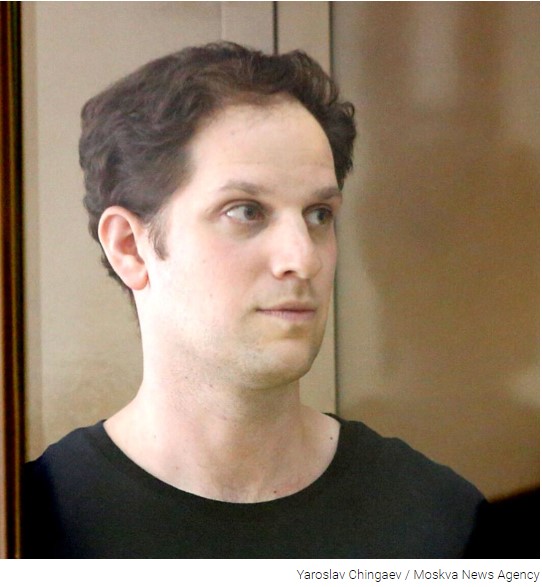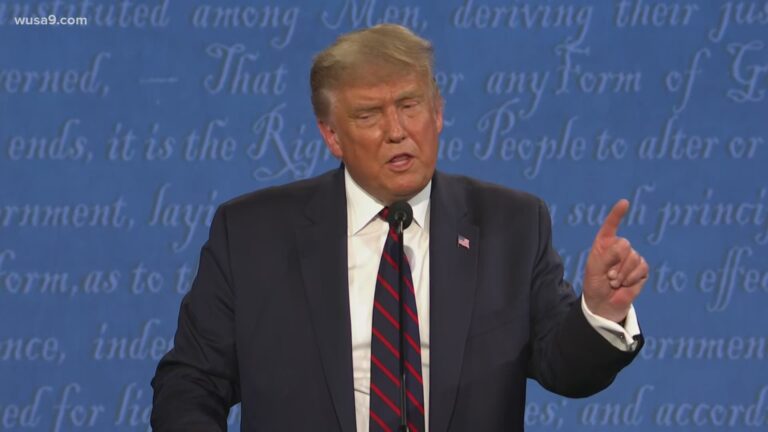
Mark Gershovich
STRATEGIC ASSESSMENT. Jailed U.S. journalist Evan Gershkovich has spent 100 days in detention on charges of espionage that he and his employer, The Wall Street Journal, strongly deny. Newsrooms around the world, including The Moscow Times, made shows of support for Gershkovich to mark 100 days since his arrest.
Gershkovich, 31, was detained by the Federal Security Service (FSB) on March 29 during a reporting trip in the Urals. He has since been held at Moscow’s Lefortovo Prison, a facility notorious for placing inmates in near-total isolation. If convicted of espionage, he faces up to 20 years in prison.
Some experts have suggested that The Wall Street Journal reporter was arrested in order for Moscow to have leverage in a future prisoner exchange with Washington.
The Kremlin said Tuesday there were “certain contacts” with the U.S. over Gershkovich, responding to a question about a possible prisoner exchange. U.S. Ambassador Lynne Tracy was allowed to visit Gershkovich in prison on Monday after a gap in visits of more than two months.
Russian state media reported that Russian consular officials were also on Monday given access to Vladimir Dunaev, an alleged cybercriminal extradited from South Korea who is currently in detention in the United States.
Peskov was asked if the coincidence of these visits indicated a possible exchange.
“There are certain contacts on this matter but we do not want them made public at all. They should take place and continue in total silence,” Peskov said, without giving further details.
Following her visit with Gershkovich on Monday, U.S. Ambassador Tracy reported that he “is in good health and remains strong, despite his circumstances,” a State Department spokesperson said.
A Moscow court on June 22 rejected an appeal to free Gershkovich from pre-trial detention, which was previously extended through August.
Gershkovich, who previously worked for AFP and The Moscow Times, is the first Western journalist arrested and accused of espionage by Moscow since the Soviet era.
American and Russian officials are holding talks on possible prisoner trades, US National Security Adviser Jake Sullivan told journalists on Friday. The list of candidates for exchange includes Wall Street Journal reporter Evan Gershkovich, he added.
The negotiations have not yielded any tangible results so far, the senior White House official said, adding that he did not want to give “false hope.” Gershkovich was arrested in Russia in late March on espionage charges and has remained in custody ever since. In May, a Russian court extended his arrest until August 30.
“There have been discussions, but those discussions have not produced a clear pathway to a resolution,” Sullivan said, when asked about Gershkovich’s case. He also added that the US had no “clear answer” on how to secure the journalist’s release.
Earlier this week, Kremlin spokesman Dmitry Peskov also confirmed that Moscow and Washington were holding talks on potential prisoner swaps. “We have said that there are certain contacts on this subject but we do not want to make them public in any way,” he said, adding that such discussions “should… continue in complete silence.”
Peskov did not mention Gershkovich’s case specifically. He only said that diplomatic access to those detained should be facilitated by both Moscow and Washington. His comments came after the US ambassador to Russia, Lynne Tracy, visited Gershkovich in Moscow’s Lefortovo prison. She stated that the reporter was in “good health” and remained “strong, despite his circumstances.”
The US officially designated Gershkovich “wrongfully detained” by Russia in April. Moscow maintains that what he was doing in the Russian city of Yekaterinburg “had nothing to do with journalism.” Peskov also previously described the reporter as being “caught red-handed” in an act of espionage.
It has also been reported that Washington has allegedly considered some “creative solutions” to secure Gershkovich’s release, including arresting some “Russian spies” in third countries to offer in exchange. A Russian MP previously suggested trading the WSJ reporter for Wikileaks co-founder Julian Assange, currently being held in a British maximum-security prison while the US seeks his extradition on espionage charges.







